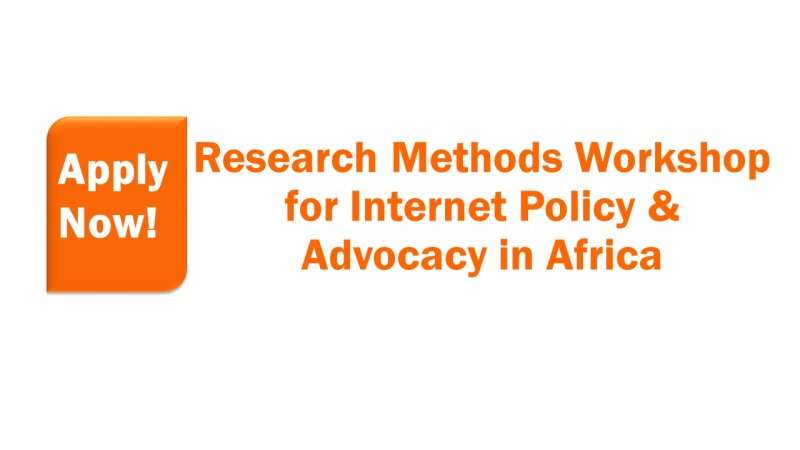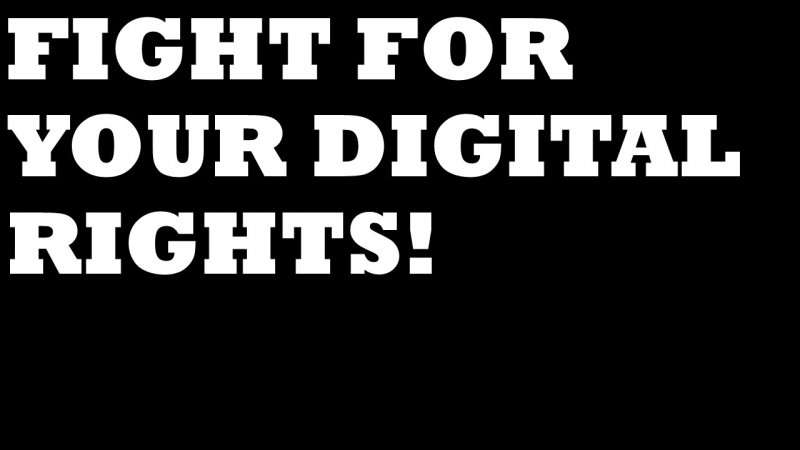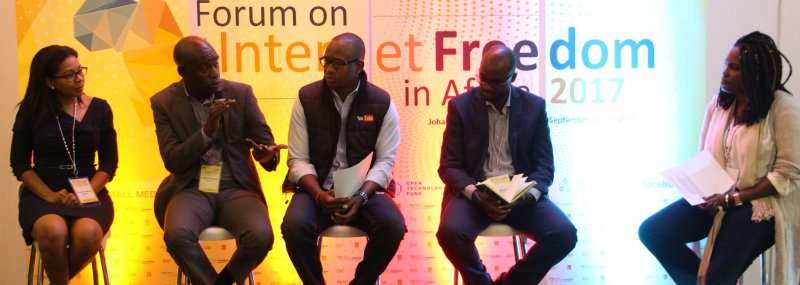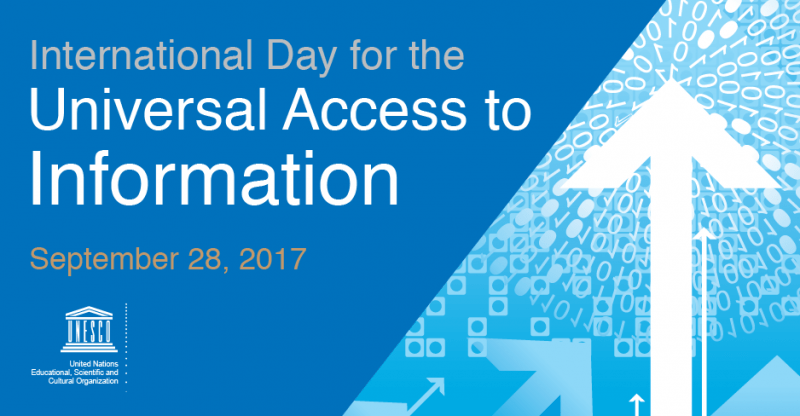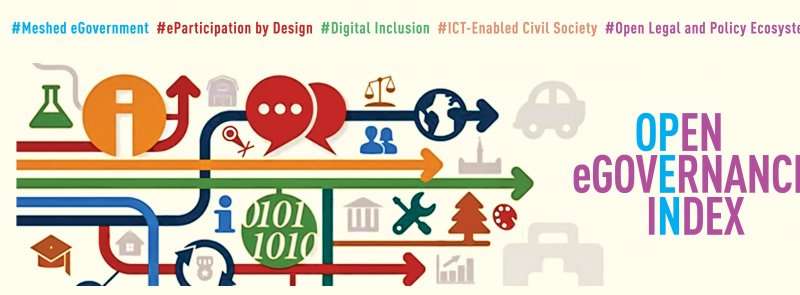Call for Applications |
The Annenberg School for Communication’s Internet Policy Observatory, the Collaboration on
International ICT Policy in East and Southern Africa (CIPESA), Research ICT Africa, Kenya ICT Action Network (KICTANet), Unwanted Witness, Paradigm Initiative, and
Young ICT Advocates seek applications from young scholars, activists, lawyers, and technologists working across Africa for an intensive practicum on using research for digital rights advocacy.
The workshop seeks to provide a venue for stakeholders in the region to build collaborative possibilities across sectors, expand research capacity within practitioner and digital rights advocacy communities, and to provide the skills and know-how to more strategically use research and data to advance advocacy efforts. Sessions will cover both qualitative and quantitative methods and will provide the space for hands-on activities and the development of individual and group research interests. In this way, the workshop seeks to provide opportunities to connect scholarly expertise with policymakers and advocates and improve working synergies between emerging African networks of civil society organizations, academic centers and think-tanks.
Sessions will include workshops on stakeholder analysis, conducting interviews, researching laws and regulations, social network analysis, network measurement, survey methods, data visualization, and strategic communication for policy impact.
We encourage individuals from Africa in the academic (early career), NGO, technology, and public policy sectors to apply. Prospective applicants should have a particular area of interest related to internet governance and policymaking, censorship, surveillance, internet access, political engagement online, protection of human rights online, and/or corporate governance in the ICT sector. Applicants will be asked to bring a specific research question to the program to be developed and operationalized through trainings, group projects, and one-on-one mentorship with top researchers and experts from around the world. Several partial and full scholarships will be made for the most competitive applicants to participate.
The course will be conducted in English and applicants should have high proficiency in English in order to interact with experts, lecturers and other participants who will come from diverse backgrounds. Please also note that we require all participants to have a laptop to use for the duration of the program.
Application Deadline: November 10, 2017
Workshop Dates: Feb 26 – Mar 3, 2018 | Location: Kampala, Uganda
To apply for the program, please fill this form.
For questions, please email Laura at [email protected].
Strategic Litigation as an Answer to Preventing Internet Shutdowns?
By Kuda Hove |
Zimbabwean lawyer and activist Kuda Hove reflects on a workshop he attended on strategic digital rights litigation hosted by the Berkman Klein Center for Internet & Society at Harvard University and Media Legal Defence Initiative as well as on various discussions from the recently concluded Forum on Internet Freedom in Africa.
The Forum on Internet Freedom in Africa 2017 (FIFAfrica17) was a great platform to learn more about the issues plaguing the African Internet space. The event was also a platform to interact with some of Africa’s sharpest Internet activists and explore opportunities for collaborative interventions for advancing internet freedom on the continent.
From the Strategic Digital Rights Litigation training workshop, I learned how litigation can serve as a tool to promote and protect online rights in various African jurisdictions. It was also in this workshop that I learnt about the role of African Regional Courts in internet and information rights related matters which are referred to them by African nationals, as evinced by the case of Lohé Issa Konaté v. The Republic of Burkina Faso in which the right to freedom of expression and freedom of the press were upheld.
I come from Zimbabwe where referral of cases to regional courts such as the African Court of Human and Peoples’ Rights is rare. In the past, Zimbabweans have successfully referred a land matter to the Southern Africa Development Community (SADC) Tribunal. However, the government of Zimbabwe ignored the SADC Tribunal ruling and pushed for changes to be made to the SADC Tribunal. As a result, it is no longer possible for private SADC citizens to directly report State sponsored human rights violations to the SADC Tribunal. It was therefore, interesting to interact with session facilitators and participants who were conversant in the procedure involved in approaching other African regional and supranational courts.
 The various discussions on Internet shutdowns in Africa were of interest to me especially when the Forum’s keynote speaker Rebecca Enonchong, described her experience during Cameroon’s 93 day internet shutdown which took place between January and April 2017. She said the deliberate shutdown of the Internet in English speaking parts of Cameroon led to a rise in “Internet refugees.” That is, individuals who travelled from parts of Cameroon without the Internet to other parts of the country where Internet was available for the purpose of accessing social media messages, emails and other Internet based communications.
The various discussions on Internet shutdowns in Africa were of interest to me especially when the Forum’s keynote speaker Rebecca Enonchong, described her experience during Cameroon’s 93 day internet shutdown which took place between January and April 2017. She said the deliberate shutdown of the Internet in English speaking parts of Cameroon led to a rise in “Internet refugees.” That is, individuals who travelled from parts of Cameroon without the Internet to other parts of the country where Internet was available for the purpose of accessing social media messages, emails and other Internet based communications.
The concept of Internet refugees reminded me of the experience of some of the rural populations in Zimbabwe. We might not have experienced internet shutdowns, but access to the Internet in areas outside of main cities and towns remains problematic, largely due to lack of infrastructure. Access to the Internet is still directly affected by factors such as access to electricity, sparsely populated cellphone towers, and lack of any substantial fixed line networks in rural areas. These infrastructure inadequacies contribute to the growth in the digital divide between urban and rural populations. Residents in rural areas are left with no choice, but to travel from their homes to the nearest clinic, growth point, or other business centre for the sole purpose of accessing mobile networks which allow them to communicate over the Internet. Given that rural women are seized with domestic roles, it is usually men who are able to travel to these areas with mobile network access, thus contributing to a gender divide when it comes to the use of ICT based communications in rural areas.
The panel discussion on the impact of Internet shutdowns raised a number of thought-provoking points and questions. For example, how do activists convince governments not to shut down the internet in their respective countries? Would an economic argument based on the negative economic impact Internet shutdowns have on national economies be effective? Or is it more effective to argue against Internet shutdowns from a human rights perspective which highlights the fact that the United Nations has recognised access to the Internet as a human right that must be protected? Despite both these arguments, the trend of internet shutdowns initiated by African governments continues to grow, which indicates that they do not care about economic loss resulting from Internet shutdowns, and the same governments have also shown a culture of impunity in respect for human rights.
 I walked away from #FIFAfrica17 pondering how successful strategic litigation against an African government which has shut down the internet might be. In my mind, this would be an attention-grabbing test case which just might be a solution and deterrent to errant African governments. Such a case would be argued before a court such as the African Court of Human and Peoples Rights. The legal basis for this challenge would be that the government in question has violated its citizens’ fundamental rights such as the right to access to information, right to freedom of expression, and the right to freedom of assembly. These rights all enjoy protection under the African Charter on Human and People’s Rights and their violation is a violation of this continental instrument. Furthermore, private sector players can even act as amici curiae and provide proof of the economic prejudice they have suffered as a direct result of being cut off from the Internet. Time will tell whether such strategic litigation will prove effective in the fight against Internet shutdowns in Africa.
I walked away from #FIFAfrica17 pondering how successful strategic litigation against an African government which has shut down the internet might be. In my mind, this would be an attention-grabbing test case which just might be a solution and deterrent to errant African governments. Such a case would be argued before a court such as the African Court of Human and Peoples Rights. The legal basis for this challenge would be that the government in question has violated its citizens’ fundamental rights such as the right to access to information, right to freedom of expression, and the right to freedom of assembly. These rights all enjoy protection under the African Charter on Human and People’s Rights and their violation is a violation of this continental instrument. Furthermore, private sector players can even act as amici curiae and provide proof of the economic prejudice they have suffered as a direct result of being cut off from the Internet. Time will tell whether such strategic litigation will prove effective in the fight against Internet shutdowns in Africa.
Forum sur la liberté de l'internet en Afrique 2017 : Notre première participation
Par Ababacar Diop |
Pour la première participation de Jonction au Forum sur la liberté de l’internet en Afrique (#FIFAfrica17) nous avons été ravi par la qualité de l’espace d’échange et de partage qui nous a été offert.
Organisé annuellement par the Collaboration on International ICT Policy for East and Soutier Arica (CIPESA) depuis 2014 à Kampala en Ouganda, et pour cette année 2017 en partenariat avec the Association for Progressive Communications (APC), à Johannesburg, le forum, s’est concentré sur plusieurs thématiques notamment la protection de la vie privée, l’accès à l’information, la libre expression, la non-discrimination et la libre circulation de l’information en ligne.
Des panélistes de haut niveau nous ont offert l’opportunité d’en apprendre davantage sur les enjeux et défis actuels de la société de l’information et de celui des droits numériques. Des interventions de qualités nous ont permis d’apprendre encore plus des expériences et des bonnes pratiques qui se développent en Afrique.
Nous témoignons, ce forum est un formidable espace de partage et d’échange d’expérience et de bonnes pratiques. Il permet en outre le renforcement des capacités des acteurs de la société de l’information et des défenseurs des droits numériques. La diversité linguistique en plus de la diversité géographique et de genre des participants constituent un vrai charme et une richesse intellectuelle du forum.
Nous avons appris à travers le forum que le réseautage est fondamental dans la défense des droits numériques. Les acteurs de la société de l’information ont besoin de collaborer et de travailler en synergie pour faire progresser les libertés sur internet, protéger davantage les données personnelles et le droit à la vie privée en ligne, faire face aux menaces qui pèsent sur la liberté d’expression sur internet partout en Afrique et lutter contre les coupures administratives d’internet pour des raisons politiques.
En effet, la présence de divers acteurs d’horizon divers a enrichi les panels et les discussions. Chacun exprimant ses préoccupations, ses expériences et ses objectifs pour une meilleure défense des droits et libertés sur internet. Tant les représentants de gouvernement que ceux de la société civile et du secteur privé chacun dans sa sphère d’activité s’est librement exprimé.
Nous avons également mesuré durant le forum toute l’importance de soutenir la recherche sur l’état de la liberté sur internet. En illustre le moment très fort lors du lancement du rapport annuel de recherche sur l’état de l’Internet en Afrique. Ce fut un intense moment de réflexion sur l’état de la liberté sur internet en Afrique. Ce rapport présentant l’état des lieux de la liberté sur internet en Afrique est si nécessaire pour les acteurs de la société civile africaine pour soutenir et documenter le plaidoyer et la sensibilisation.
Nous avons également appris que la réussite de tout forum repose sur le dynamisme et l’engagement des organisateurs. Nous félicitons ici les organisateurs et organisatrices qui n’ont ménagé aucun effort pour rendre agréable et studieux notre séjour. Toutes nos félicitations au comité d’organisation.
A la lumière de ce qui précède, nous lançons un appel à tous les bailleurs de renforcer leur soutien au Forum sur la liberté de l’internet en Afrique pour une plus grande participation des diverses régions de l’Afrique. La tenue annuelle du forum est d’une importance capitale pour les acteurs africain du Net. Un tel espace de rencontre, d’échange et de mise en réseau est nécessaire pour faire progresser le respect des droits numériques dans notre continent.
Nous lançons également un appel à tous les acteurs de travailler en synergie afin de mener la pression sur nos gouvernements pour le respect de la liberté d’expression sur internet et le respect du droit d’accès à l’information qui sont des piliers nécessaires à toute société démocratique qui aspire au développement économique, social et culturel. L’émergence de nos pays passe nécessairement par le respect des droits numériques.
L’Afrique a besoin de ce forum, l’Afrique doit soutenir le Forum sur la liberté de l’internet en Afrique.
Initialement publié sur le site de Jonction
Universal Access to Information in Africa: What Governments Need to Do
By Edrine Wanyama |
The annual celebration of the International Day for Universal Access to Information (IDUAI) on September 28 is aimed at highlighting the importance of access to Information (ATI) as a cornerstone of all other rights. This year’s IDUAI celebrations were held in Mauritius, organised by the United Nations Educational, Scientific and Cultural Organisation (UNESCO) as part of the E-learning Africa summit (E-Summit). The summit is a fora for deliberation on issues of access to learning and vocational training, access to information, equality and quality in education, literacy and governance with prioritisation of sustainable development solutions.
The Collaboration on International ICT Policy for East and Southern Africa (CIPESA) participated at the e-Summit, making contributions on open access to information and the prerequisites for ATI, including highlighting the need for a conducive policy, legislative and regulatory environment to ensure universal access to information in Africa. Among the measures proposed at the meeting were the full recognition of ATI by more African states supported by the implementation of ATI laws and regulations which effectively empower citizens to demand for information.
Discussions at the summit also entailed a call for governments to ease access to information across multiple platforms including online, in print and through traditional media, alongside clear procedures on how information can be accessed in instances when it is not publicly available. Further, there should be efforts to minimise the costs of accessing information as well as making clear provision for timely information request processing, response and complaints handling mechanisms. A key enabler of the realisation of ATI in many countries will be the repealing of draconian and conflicting legislation and putting in place robust personal data protection measures.
Meanwhile, at the Forum on Internet Freedom in Africa hosted by CIPESA in Johannesburg, South Africa, there was emphasis on the need for governments to limit exemptions to accessible information, improve on data storage mechanisms and systems, provide for mandatory disclosure of information and put in place strong and functional penal mechanisms against information officers who deny citizens information.
Access to information (ATI) is a fundamental human right recognised by international human rights instruments, including articles 19 in both the Universal Declaration of Human Right and the International Covenant on Civil and Political Rights. These articles provide for, among others, the right to freedom of opinion and expression including receiving and imparting information and ideas through media. ATI is also recognised in articles 13(1) and 17 of the Declaration on the Rights of the Child; article 15 of the United Nations Declaration on the Rights of Indigenous People; and the United Nations General Assembly Resolution 59 (1).
The summit brought together participants from all the 54 African countries. However, African countries continue to grapple with enacting ATI laws. Out of 54 countries, only 22 have enacted ATI laws. Additionally, these existing laws have been criticised for failing to meet international minimum standards, with limitation to access outweighing access rights.
Despite the overwhelming participation of African countries, the dilemma remains in the low response to ATI legislation. It should be noted that the lack of ATI legislation negatively impacts accountability and transparency by the state, which are tenets grounded on access to information.
Uganda On the Right Path Towards Realising Open eGovernance
By Lilian Nalwoga |
The Uganda government has identified Information and Communication Technology (ICT) as one of the key drivers of socio-economic transformation in the country. This is evidenced in its presence as a priority in national development frameworks such as Vision 2040 and the National Development Plan II (NDP II) which spans from 2015 to 2020.
Extension of the National Broadband Infrastructure (NBI) which to date has connected a total of 133 Government Ministries, Departments and Agencies (MDAs) sites out of which 94 are currently utilising internet delivered over the NBI. Further the NBP II also prioritises the construction of incubation hubs and ICT parks.
These frameworks have recently been measured for the level of governmental openness they enable. Open e-Governance is measured in terms of the ability of the different actors in the internet access eco-system , including governments, business and civil society, to participate in decision-making processes through the use of information and communication technologies.
In March 2017, CIPESA conducted a study into the State of Open eGovernance in Uganda. The study forms part of the Open e-Governance Index (OeGI), an action-research project implemented by the Foundation for Media Alternatives (FMA) `that aims to measure the state of ‘openness’ in the implementation of ‘e-governance’ around the world.
The OeGI index comprises four key dimensions which are measured for different qualities with the highest score being 1 a dimension can score. The study revealed that the dimension Uganda scored highest in was digital inclusion at 1.00 and scored lowest in the dimensions on meshed eGovernment, eParticipation channels and ICT empowered civil society respectively.
Dimension and Country Index Scores
| Dimension | Description | COL | IND | PAK | PHI | UGA | Average |
| Meshed eGovernment | The ability of governments to provide citizen centric online services. | 0.92 | 0.54 | 0.38 | 0.72 | 0.35 | 0.58 |
| eParticipation | new, digital medium for public participation | 0.51 | 0.82 | 0.32 | 0.65 | 0.36 | 0.53 |
| Digital Inclusion | Presence of policies and programs that support the public’s wider use of ICT | 0.83 | 0.50 | 1.00 | 0.33 | 1.00 | 0.73 |
| ICT empowered civil society | ICT readiness and utilisation CSOs and other non-State organisations such as political parties and people’s organisations. | 0.63 | 0.54 | 0.71 | 0.75 | 0.39 | 0.60 |
| Enabling / constraining environment | Extent that the government recognizes and fosters the right to freedom of expression, right over personal communication, cultural freedom and the use of local languages government’s ability to place its public functions online, which comprises many aspects of ICT enablement. | 0.81 | 0.78 | 0.63 | 0.63 | 0.78 | 0.73 |
| Average | 0.74 | 0.64 | 0.61 | 0.62 | 0.58 | 0.64 |
In terms of Meshed eGovernment, Colombia scored the highest at 0.92, followed by the Philippines at 0.72, Indonesia at 0.54, Pakistan at 0.38 and Uganda at 0.35. In the eParticipation channel dimension, Indonesia had the highest score at 0.82, followed by the Philippines at 0.63, Colombia at 0.51, Uganda at 0.36 and Pakistan at 0.32.
Pakistan and Uganda scored 1.00 in the Digital Inclusion dimension, followed by Colombia at 0.83, then Indonesia at 0.50, and the Philippines at 0.33. In the ICT empowered civil society dimension, the Philippines scored the highest at 0.75, followed by Pakistan at 0.71, Colombia at 0.63, Indonesia at 0.54 and Uganda at 0.39. In the Enabling/Constraining Environment dimension, Colombia scored the highest at 0.81, followed by Indonesia and Uganda both at 0.78, then Pakistan and the Philippines both with a score of 0.63.
Uganda’s highest score in Digital Inclusion reflects the presence of universal access and literacy policies in place, such as the National ICT Policy 2014, Rural Communications Development Fund Policy 2001 and draft broadband strategy although adoption and implementation is still challenge.
Despite, having the lowest average index score of 0.58 out of 1, the study indicates that Uganda is moving towards the right path to implementing eGovernance. This includes a growing number of e- services being offered by public agencies such as e-filling for taxes, presence of enabling laws and policies, some of which are positive for citizen participation, free expression and open governance and a growing use of ICT by both governments and Civil Society Organisations (CSOs).
Nonetheless, slow uptake and uncoordinated implementation of eGovernance across government Ministries, Departments and Agencies (MDAs) is still hampering its full adoption. Thus, more commitment towards adoption of policies especially those focusing on promoting open data, open standards and privacy and data protection is needed.
Full findings of the study can be found here.

